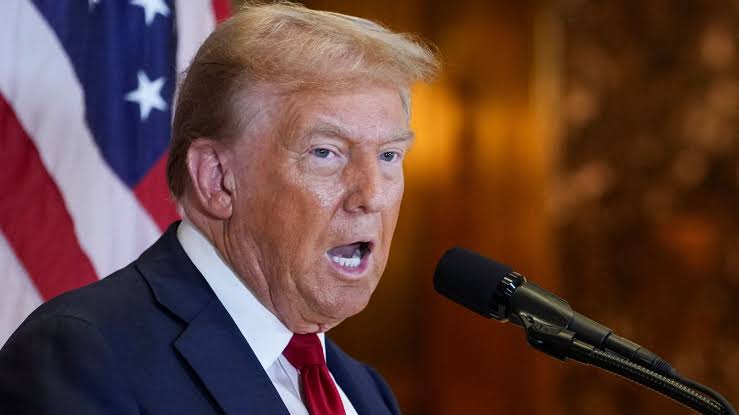Former president of the United state of America Donald Trump recently reignited controversy by stating that if re-elected, he would revoke the Temporary Protected Status (TPS) of Haitian immigrants, particularly targeting those in Springfield, Ohio.

Donald Trump has pledged to deport tens of thousands of Haitian migrants, despite many of them living in the U.S. legally under TPS.
The former President now the presidential flag bearer for the Republicans Made this declaration as part of his broader immigration policy, which aims to curb some issues like housing shortages and overwhelmed schools in areas like Springfield, which he said were “overrun.”
Trump’s comments follow months of rhetoric from both him and his running mate, Ohio Senator JD Vance, who have been criticized for spreading false narratives about the Haitian community.
Vance has accused the immigrants of activities like abducting and eating pets—a claim that has been widely debunked but has fueled fear and resentment among some constituents.
Haitian migrants in the U.S., many of whom have established roots and contributed to their communities, have been particularly vulnerable under Trump’s immigration policies.
When asked if he would revoke their TPS, Trump confirmed, saying, “Absolutely. I’d bring them back to their country.”
This announcement has sparked outrage, with critics highlighting the instability in Haiti, making deportation not only dangerous but inhumane.
The island nation is currently grappling with political unrest, gang violence, and widespread poverty.
Legal experts have raised doubts about the feasibility of Trump’s promise to deport legal immigrants.
According to immigration law, TPS holders are protected from deportation unless they commit a crime or violate other immigration laws.
Stephen Yale-Loehr, a professor at Cornell Law School, explained that TPS holders shouldn’t be placed in deportation proceedings unless other legal grounds exist.
This could pose significant legal challenges to Trump’s potential policy implementation.
Public reactions have been highly critical. Many see Trump’s rhetoric as demonizing a vulnerable group and feeding xenophobic sentiments.
Social media users have condemned his plan as heartless and cruel, particularly given the dire situation in Haiti.
Some commentators argue that this is part of a broader strategy by Trump and his supporters to scapegoat immigrants for societal issues in the U.S. while deflecting attention from other problems.
The situation has raised alarm among immigrant advocacy groups, including the Haitian Bridge Alliance, which has filed charges against Trump and Vance for spreading harmful misinformation about the Haitian community.
These charges aim to hold both political figures accountable for their dangerous and misleading rhetoric.
Trump’s plan is part of his broader immigration policy proposals for the 2024 presidential election, which includes promises to carry out what he calls "the largest deportation in U.S. history."
This proposal has further polarized public opinion, as many Americans grapple with the ethics and logistics of such drastic measures.
As Trump gears up for his campaign, this policy point is likely to remain a flashpoint in debates about immigration, race relations, and human rights.
